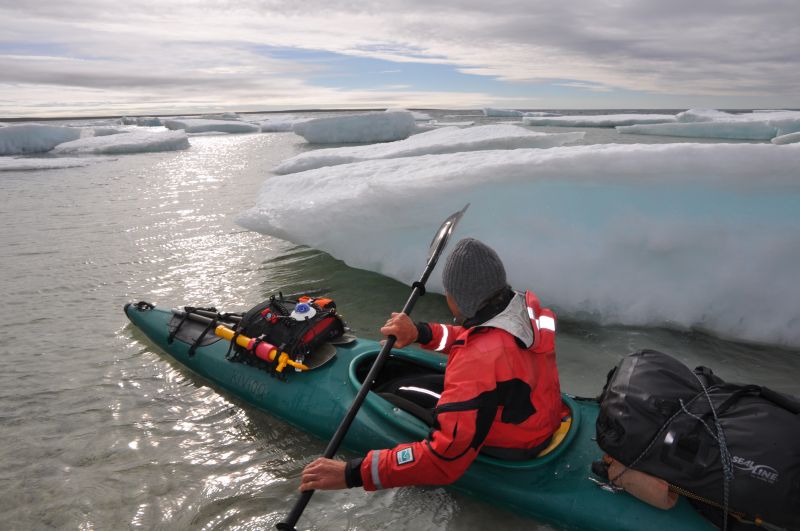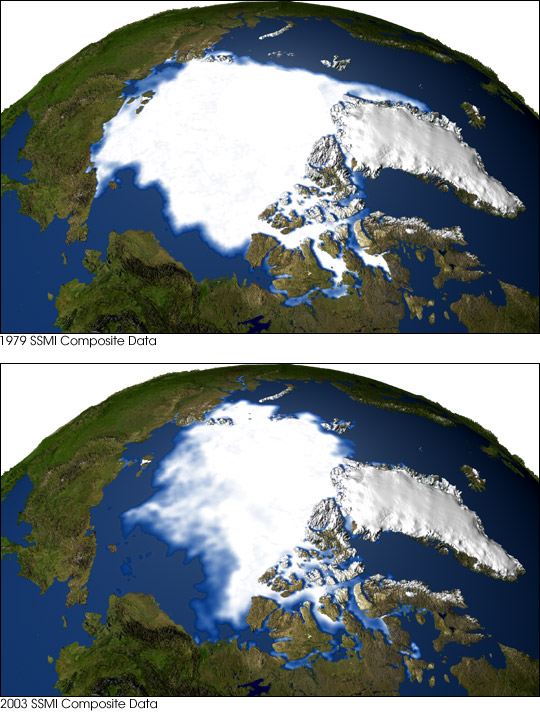Climate Change and the Arctic

In 2004, after four years of research by hundreds of scientists and experts in traditional knowledge, the Arctic Climate Impact Assessment released a report confirming that the impacts of climate change on the Canadian Arctic are among the most severe and dramatic impacts seen anywhere on earth.
"By the latter part of this century, annual average temperatures are projected to rise across the entire Arctic, with increases of roughly 3-5˚C over the land areas and up to 7˚C over the oceans. Winter temperatures are projected to rise significantly more, with increases of 4-7˚C over the land areas and 7-10˚C over the oceans." ACIA Impacts of a Warming Arctic: Arctic Climate Impact Assessment, 2004
Over the last several decades, average temperatures in the Arctic have risen almost twice as quickly as those in the rest of the world. Thinning sea ice, changes in precipitation and melting permafrost all have serious ramifications for Arctic ecosystems and human inhabitants. The impacts are also felt globally. Large scale melting of glaciers and sea ice change both sea levels and salinity, which in turn impact ocean currents. Permafrost, a major carbon sink, releases carbon dioxide as it thaws and begins to decay. Both of these changes contribute to or exacerbate the impacts of climate change.


